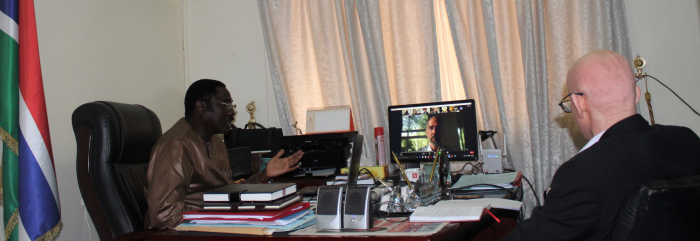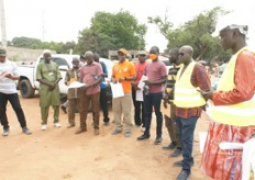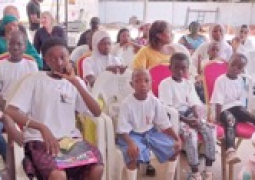
He said The Gambia government introduced response strategies to ensure school curricular learning across the country. Below is the full text of Dr. Tangara's speech.
Keynote address by H.E. Dr. Mamadou Tangara, minister of Foreign Affairs, International Cooperation and Gambians Abroad of the Republic of The Gambia at the Education Above All (EAA) Foundation Virtual event on the theme: “Education and Trying Times of Covid-19”
8th July 2020
Chairperson of EEA Foundation
Ambassador and Permanent Representatives of the State of Qatar to the United Nations
Chief Executive Officer of EEA Foundation
Excellences
Distinguished participants
It is a great honour and privilege to be given this unique opportunity to deliver a keynote address on this auspicious occasion. I want to take this opportunity to extend greetings from H.E. Adama Barrow, President of the Republic of The Gambia. I sincerely thank the Chairperson of Education Above All Foundation for convening this all important virtual meeting on the theme “Education and the Trying Times of Covid-19”.
My task is to summarise the challenges The Gambia faces in addressing the effects of Covid19 on education. Madam Chairperson Prior to the Covid-19 pandemic, The Gambia had been making significant progress on SDG 4 on quality education especially in terms of gross primary enrolment rates. The United Nations Development Programme (UNDP) report on the impact of Covid-19 in The Gambia states that school closures have affected 67,000 in The Gambia. This number only refers to children attending nursery to senior secondary schools and not including tertiary education where there are over 6, 000 students. The implications are that it will be difficult for schools to achieve 100 percent school contact hours in the 2020 academic year. The government of The Gambia, through the Ministry of Education, had to close all schools to minimise the spread of the pandemic. This decision posed difficulties for students, schools, families and the government.
To address these challenges, the government of The Gambia employed a mixed of innovative response strategies including high-tech, low-tech and no-tech strategies to bring about this alternate platform. Students in all categories of public schools: nursery, lower basic schools, upper basic schools, senior secondary schools received their lectures through radio and TV, Colleges, universities and international schools delivered lectures through online classes.
Honourable Chairperson
Sailing through these new and unchartered territories of having to shift teaching and learning, posed significant challenges to all stakeholders in the education sector including the following:
- Distant learning and home-schooling posed a great challenge as parents are unprepared.
- There is high economic cost given that most parents cannot work as they have to take care of their children at home.
- Some teachers lack the requisite IT skills to deliver lessons online, given that the teacher training curriculum does not include this sort of skills.
- There is also the challenge of a stable supply of electricity. Statistics show that only half of the population of The Gambia has access to electricity as of 2019. 60% of the urban population is served with electricity and only 25% of the population has access to electricity services as of 2019.
- Most households lack the required facilities: laptop; radio; TV set and mobile phone.
- There is a challenge of ensuring that students are monitored effectively and efficiently by their parents or guardians.
- There is a challenge of meeting the target of 880 hours of instruction annually.
- Challenge of supporting health and wellbeing of learners
- Increase level of risk of sexual and gender-based violence especially on children
- Social and emotional isolation of learners (pair to pair interaction)
- Risk of the high rate of school dropouts due to the long period of disengagement.
- High level of inequality owing to the socio-economic and regional disparity.
- We recognise the fact that thousands of school children in The Gambia are at risk of loitering in the streets and even selling in the streets to support their families to manage the loss of income.
Honourable Chairperson
It is obvious that the global educational system continues to be affected by the Covid-19 pandemic. This impact is mainly felt in low-income countries and Gambia by analogy is not an exception. As a result, this calls for concerted efforts in making sure that children and students in general, wherever they have access to unhindered education. There should be careful study of the pandemic and how it affects children before developing any policy for inclusive and equal access to education for all without discrimination. I, therefore, call on all stakeholders to join hands in supporting less privileged countries like The Gambia to mitigate the challenges caused by the pandemic.
I thank you for your attention.
Issued by the Communication Unit of the Ministry of Foreign Affairs, International Cooperation and Gambians Abroad





